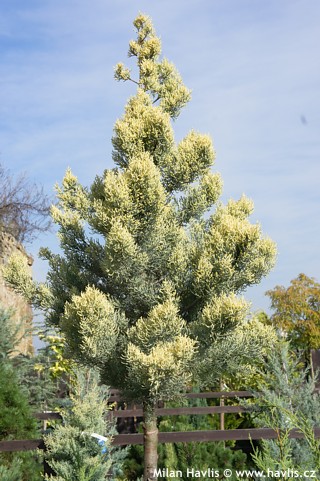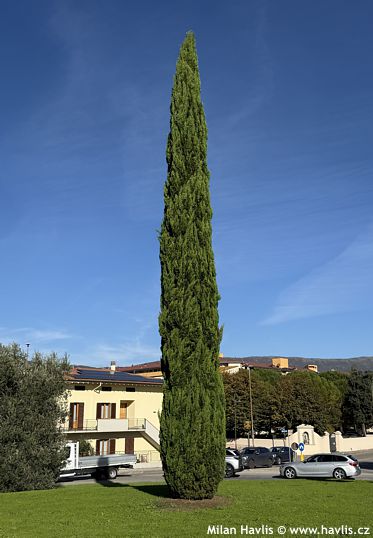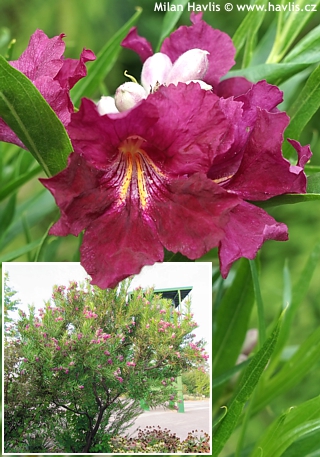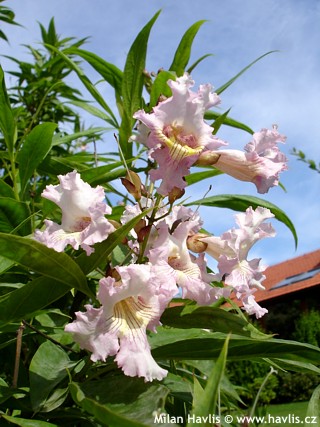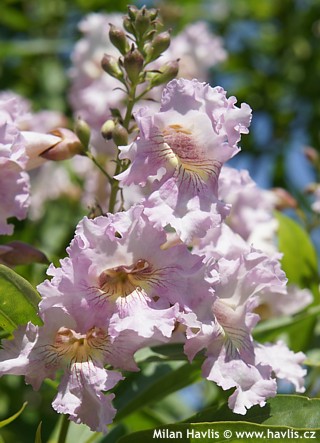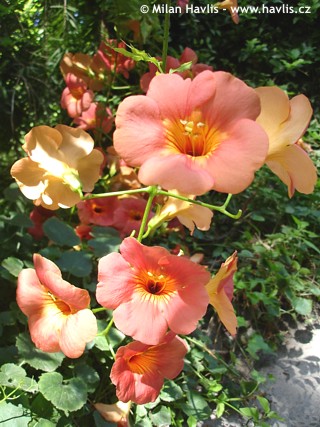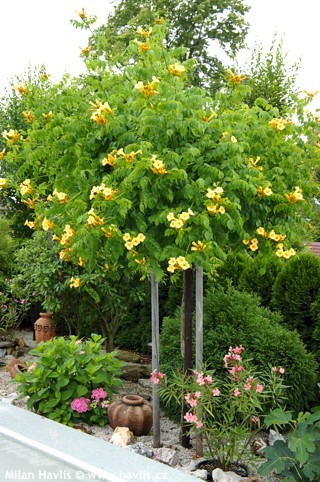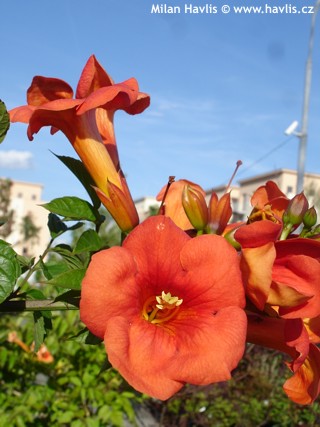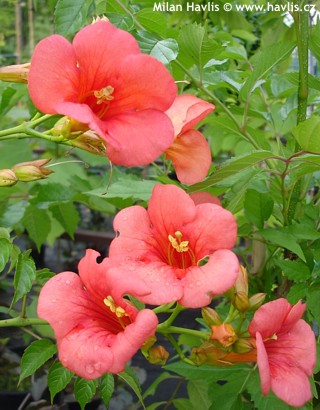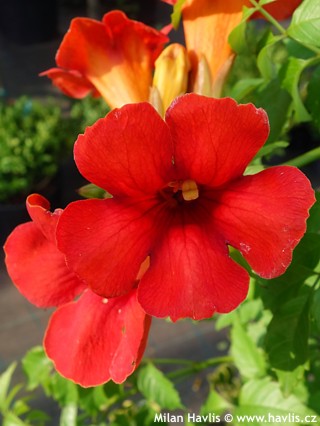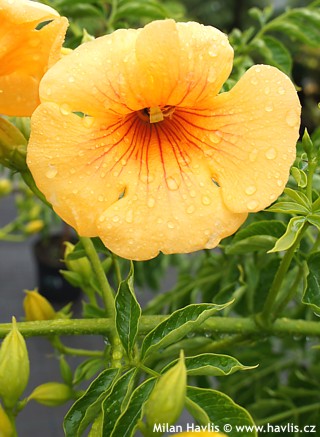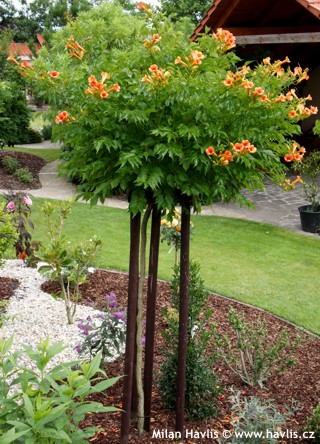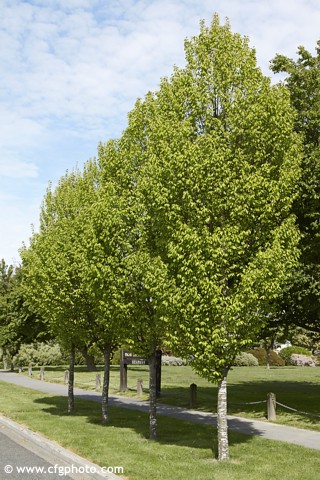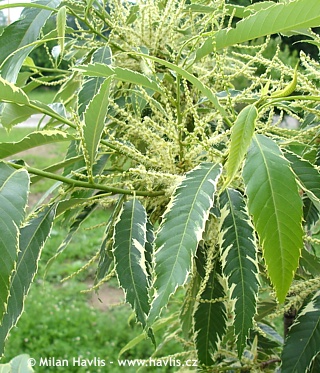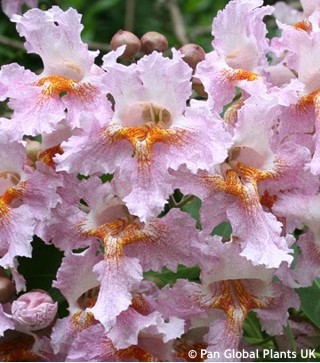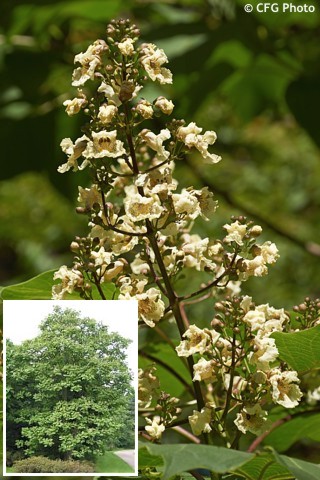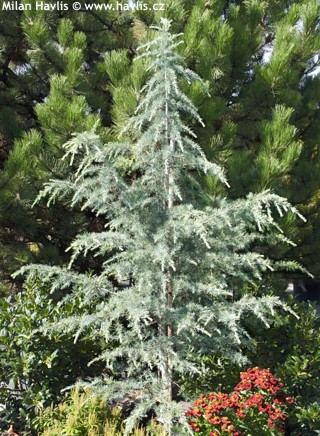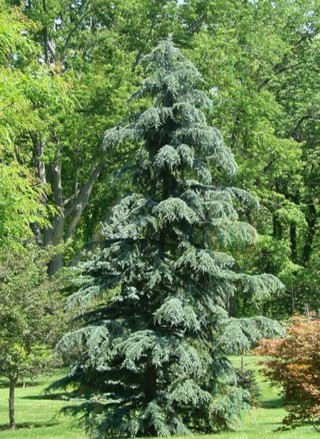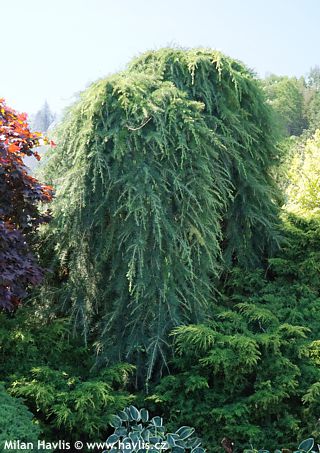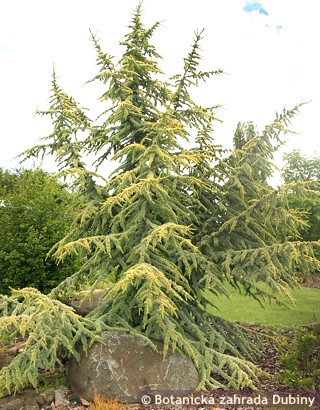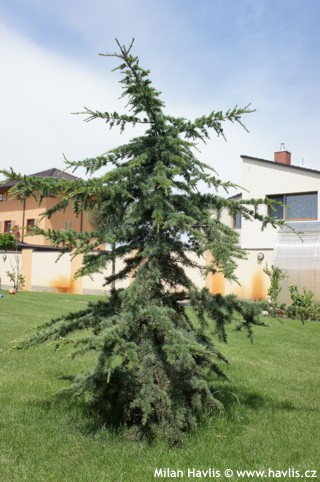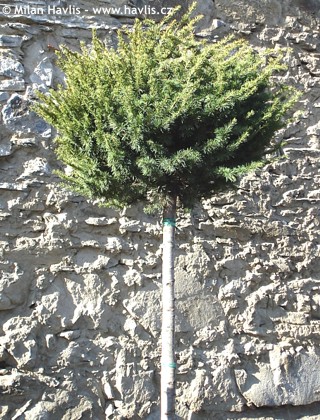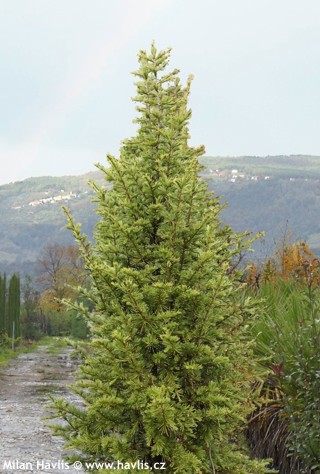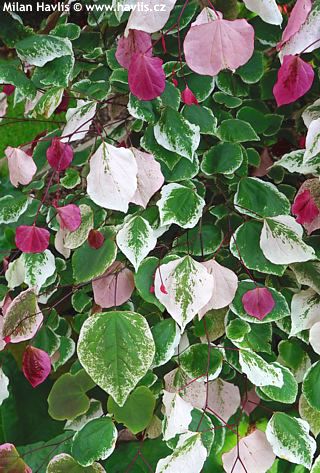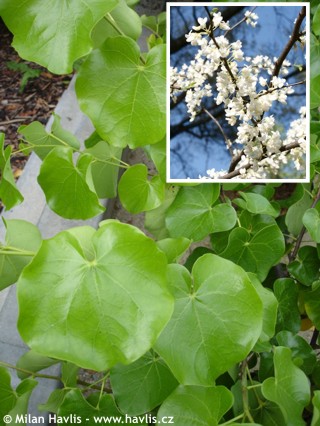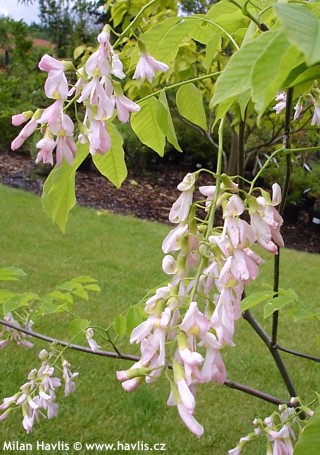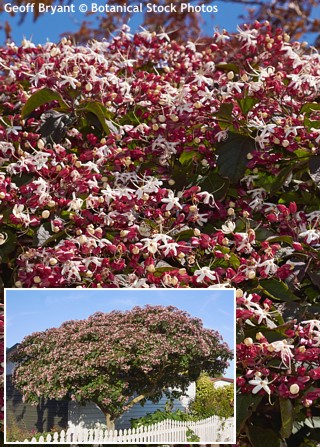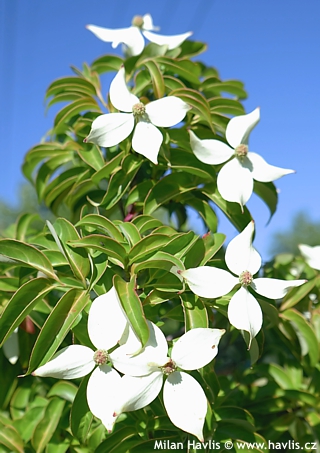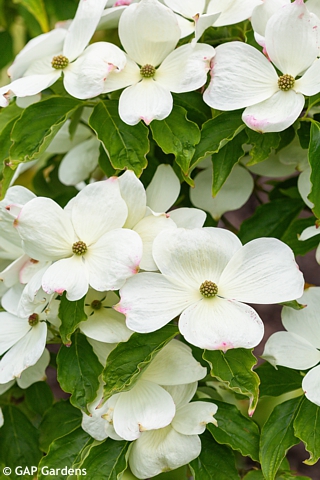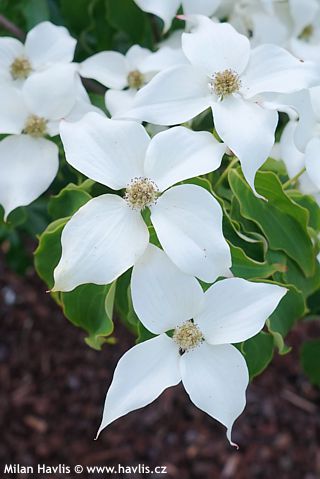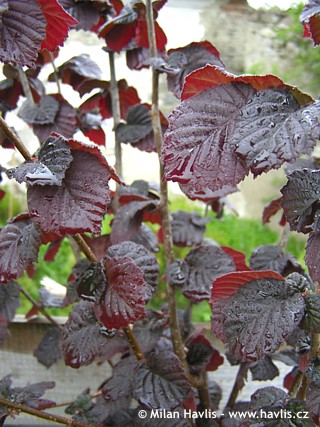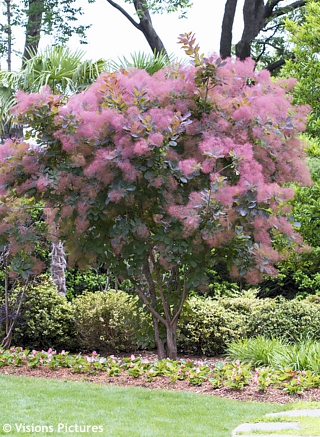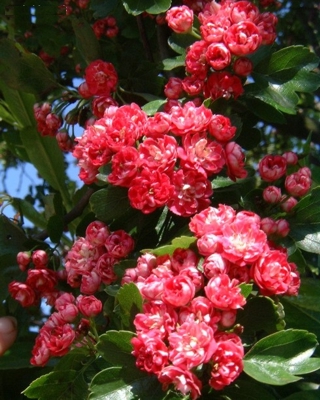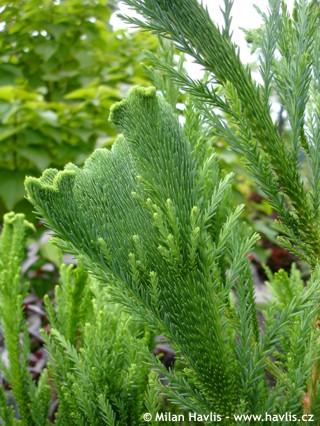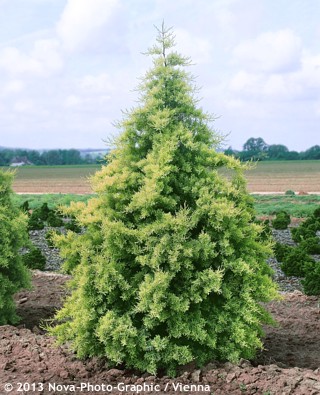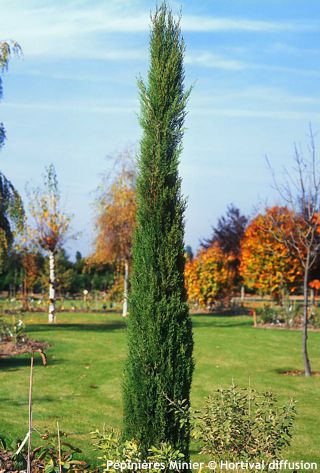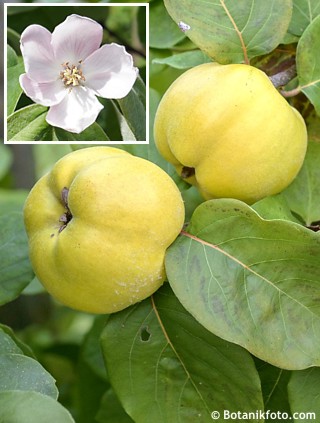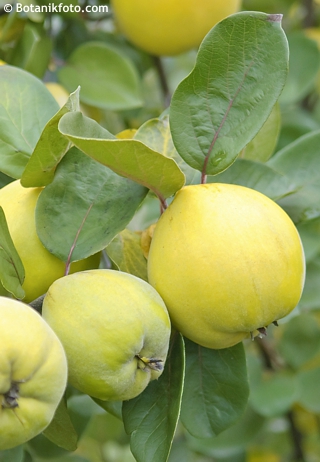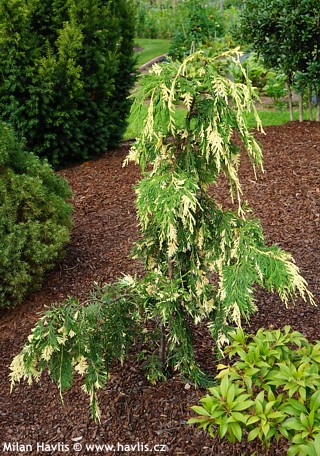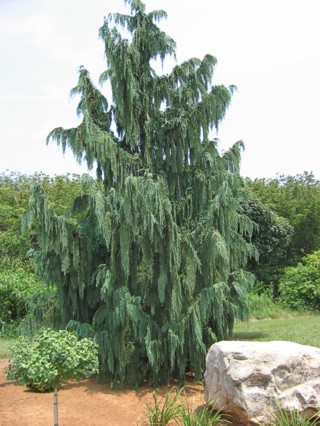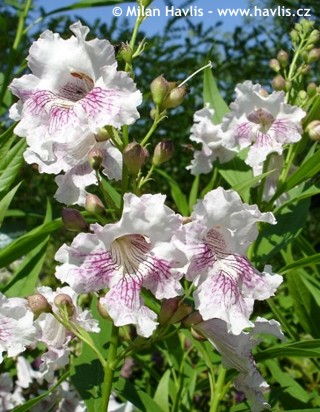CURRENTLY IN STOCK:
This is the species of north-american trumpet creeper trained into a tree with a real stem. It bears terminal cymes of rich red, trumpet-shaped flowers from early summer until the first frosts. Pinnate
leaves are deep green and enhance its tropical appearance.
Being originally a climbing plant it ...

VI - IX

2 - 3m

1 - 2m

full sun

4 (down to -34°C)

for zone 5+6

for zone 7
Pendula is a weeping form of hornbeam. Mature plants make gracious looking specimens with irregularly weeping or cascading branches. Their crowns are usually not too symmetrical providing a unique appearance for every plant. Naturally the crown grows slowly into a large, umbrella-shaped head with br ...

2 - 4m

2 - 6m

full sun

4 (down to -34°C)

for zone 5+6

for zone 7
One of the original trees found in natural woodlands of Europe is hornbeam. Varieties of this deciduous tree are becoming more and more popular in gardens, too.
Fastigiata, syn. “Pyramidalis” is an elegant, slow growing hornbeam with columnar habit and branches growing strictly upright ...

8 - 12m

2 - 4m

full to partial sun

4 (down to -34°C)

for zone 5+6

for zone 7
Sweet chestnut is cultivated for several beautiful features. The deciduous leaves are deep green, elliptic to oblong, up to 20 cm long, distinctly serrated and glossy, turning deep golden yellow in autumn. Flowers are creamy beige catkins that appear in July. They release a rather strong fragrance ( ...

VII - VII

5 - 20m

5 - 10m

full to partial sun

5 (down to -29°C)

for zone 5+6

for zone 7
Catalpas have been grown in our country for many years. The species may be found in every larger city as an important feature of a city park. It offers outstanding points of interest such as large leaves in summer and long cigar-shaped seed pods in winter, hence its name Indian Bean Tree.
Flowers a ...

VI - VII

5 - 10m

3 - 5m

full sun

5 (down to -29°C)

for zone 5+6

for zone 7
Aurea variey bears huge, tropical looking, heart shaped leaves (20-25 cm large), of bright yellow-green colour. They are slightly hairy like suede, pleasant to touch. They have interesting scent similar to tobacco leaves that allegedly repels insects.
Beginning of summer 20-30 cm tall upright pani ...

VI - VII

2 - 8m

2 - 6m

full sun

5 (down to -29°C)

for zone 5+6

for zone 7
Nana variety is a lot different to the species. It can be found under its second Latin name catalpa bungei. It is a small tree that can be considered dwarf as opposed to its parent. It was bred to achieve an attractive tree with exceptional foliage but of reduced size to fit even a small garden or a ...

2 - 3,5m

2 - 4m

full sun

5 (down to -29°C)

for zone 5+6

for zone 7
Do you like a tall tree but are afraid it would be too big for your small garden? Well, if you have enough will to prune it every one or two years you can always control its size provided it is not an ash type tree growing about 1 m every year. Thus you can enhance the look of your garden with somet ...

VI - VII

3 - 9m

3 - 6m

full sun

5 (down to -29°C)

for zone 5+6

for zone 7
Blue Atlas cedar has distinct silvery-blue persistent larch-like needles born in whorls of 30-45. This gives a much dense appearance compared with other green cedars. Healthy young tree is well branched from the ground and retains its bottom branches. Young plants have conical habit which with age c ...

10 - 20m

5 - 12m

full sun

7 (down to -23°C)

for zone 5+6

for zone 7
This variety is a weeping form of blue Atlas cedar. It has distinct silvery-blue persistent larch-like needles born in whorls of 30-45. Their striking colour makes the tree a gorgeous lawn specimen same as an ideal feature when combined with other, dark green conifers. Just remember that this one is ...

2 - 4m

full sun

5b (down to -27°C)

for zone 5+6

for zone 7
Deodar – Himalayan cedar is the most graceful of all cedars. It has strictly pyramidal habit when young, spreading branching and weeping ends. The needles are short, mid green, borne in whorls of 20-30. Female cones appear in summer. Older plants form unique shapes.
This is probably the most ...

10 - 20m

5 - 6m

full sun

7 (down to -23°C)

for zone 5+6

for zone 7
Himalájský cedr is the most graceful of all cedars. Robusta Glauca is an Italian selection with long, evergreen needles. Their colour is from blue-green to almost silvery blue while new shoots are soft green. Robusta Glauca cedar is unique for its robust structure with strong stem and habit which is ...

10 - 15m

5 - 7m

full sun

5b (down to -27°C)

for zone 5+6

for zone 7
Cedar of Lebanon is a majestic specimen tree with needle-like dark green to blue-green foliage that looks like larch but is evergreen. Young trees are densely branched from the ground but low branches can be removed in the autumn if planted close to houses to make more room beneath. The branches are ...

10 - 20m

10 - 15m

full sun

5b (down to -27°C)

for zone 5+6

for zone 7
Pendulum is a weeping form of katsura tree which forms picturesque cascades of flexible branches. Leaves are deciduous, rounded to heart-shaped, and emerge purple red, change to rich green in spring with some bluish tones in summer, and turn exquisite shades of yellow and golden in autumn. Freshly f ...

4 - 8m

2 - 4m

full sun

4 (down to -34°C)

for zone 5+6

for zone 7
Merlot redbud, just the French grapevine variety of the same name, has leaves of the deepest wine red colour. They are deciduous, heart-shaped, and glossy. Compared to Forest Pansy they are a little smaller (abt. 10x13 cm), the plant is not as vigorous, and exhibits a more compact and denser habit. ...

IV - V

2 - 3m

2 - 2,3m

full sun

for zone 5+6

for zone 7
Alley Cat, a variety of Eastern redbud, is a gem, or perhaps even a work of art. Imagine a vibrant green coat worn by an eccentric painter who paints exclusively in white, while listening to the Toreador Song and Habanera from Carmen, splashing white paint all around in ecstasy, including on his own ...

IV - V

3 - 5m

3 - 5m

full to partial sun

5 (down to -29°C)

for zone 5+6

for zone 7
Eastern redbud is a lovely, deciduous, small tree or a large shrub where the word “love” is the key feature. Why? Because its leaves are in a perfect shape of a heart that we are used to draw as an icon. Moreover, Forest Pansy variety has burgundy red to deep burgundy brown foliage. If p ...

IV - V

2 - 4m

2 - 4m

full sun

5 (down to -29°C)

for zone 5+6

for zone 7
Lavender Twist® is a fantastic variety of eastern redbud with weeping, slightly twisted branches. With age the crown makes a unique shape comparable to some Japanese maples. Leaves are large, mid green, typically heart-shaped. Small, purple-pink to lavender-pink flowers are produced in abundanc ...

IV - V

1 - 2m

1 - 3m

full to partial sun

5 (down to -29°C)

for zone 5+6

for zone 7
Ruby Falls is undoubtedly one of the darkest coloured little trees that will grab your attention thanks to its dark burgundy red, typically heart-shaped, approximately 8x10 cm large leaves and a weeping habit. Its crown is quite compact and the branches may soon touch the ground unless pruned on reg ...

IV - V

1 - 2m

1 - 2m

full sun

7 (down to -23°C)

for zone 5+6

for zone 7
RISING SUN™ is an American variety of Eastern redbud found by Ray and Cindy Jackson for their Jackson Nursery in Belvidere, Tennessee, as a chance seedling. It boasts large, 10-14 cm long and wide, broadly heart-shaped leaves which emerge bright golden or orange while older leaves are bright y ...

IV - V

2 - 4m

2 - 4m

full to partial sun

5 (down to -29°C)

for zone 5+6

for zone 7
Judas tree is a rather special plant with profusion of beautiful, bright pink flowers in mid spring. They are small, pea-like, and so special due to their appearance on bare wood and even the main stems, however large and old they are. For prolific flowering the plant needs a hot and sunny summer in ...

IV - V

4 - 7m

3 - 5m

full sun

7 (down to -23°C)

for zone 5+6

for zone 7
Yellow wood is a rare, though fully hardy tree that deserves more attention. Its origin is not clear and definite. Usually this small tree or large shrub is connected with Kentucky, USA, but many plants grow freely on limestone cliffs on China and Japan. It used to be a jewel of royal gardens and ar ...

VII - VII

5 - 10m

full sun

5 (down to -29°C)

for zone 5+6

for zone 7
Stellar Pink® is a cross between cornus kousa and cornus florida “Sweetwater”. The flowers are in fact bracts. There are 4 wide bracts, composed around a small flower head, 10 cm across. It is very floriferous once it reaches good flowering age. It flowers from its 3rd year and prof ...

V - VI

3 - 6m

full sun

5 (down to -29°C)

for zone 5+6

for zone 7
Filbert is a hazelnut species from S.E. Europe and S.W. Asia and exhibits a vigorously growing many-stemmed shrub with deciduous leaves. Purpurea is an old variety with deep maroon to near black leaves. They are 5-12 cm long, 4-10 cm wide, and during summer the colour of maturing leaves changes to d ...

II - III

3 - 6m

3 - 6m

full sun

4 (down to -34°C)

for zone 5+6

for zone 7
Granatnaja is a Russian cultivar of crataegosorbus - a medium-sized tree with edible fruit. Its leaves are odd-pinnate, with lanceolate to elliptical, finely serrated leaflets that resemble hawthorn more than rowan, reflecting its hybrid origin. In autumn, the foliage turns vibrant shades of red-ora ...

IV - V

3 - 6m

3 - 4m

full to partial sun

4 (down to -34°C)

for zone 5+6

for zone 7
Carrièrei hawthorn differs from the original hybrid by a much more profuse blooming and therefore a magnificent display of fruit in autumn. It is a small to mid-sized tree whose leaves, though deciduous, remain on the tree much longer than on other deciduous trees. So no wonder that many garden ...

V - VI

3 - 5m

2 - 4m

full to partial sun

4 (down to -34°C)

for zone 5+6

for zone 7
Splendens hawthorn is undoubtedly one of the most beautiful trees of northern hemisphere not only among hawthorns. It is valued for its lush, glossy foliage and a profusion of red berries. Leaves are deciduous, broadly elliptic, serrated at margins, dark green in spring and summer, and take on vibra ...

V - VI

4 - 7m

3 - 4m

full to partial sun

4 (down to -34°C)

for zone 5+6

for zone 7
Following the success Little Champion variety, Little Diamond is another dwarf Japanese cedar variety with a spherical habit. It originated in the Netherlands in 1990, and its beauty inspired the growers to train it into a gorgeous little tree with a single trunk. Since Little Diamond grows slowly, ...

1 - 2m

0,5 - 1m

full to partial sun

5 (down to -29°C)

for zone 5+6

for zone 7
Leyland cypress is a hybrid genus between cupressus macrocarpa and chamaecyparis nootkatensis. It is a fast growing conifer, used mainly in hedges and as windbreak.
It produces flattened sprays of scale-like, dark green leaves. The branches are not pendent, not erect. Something in between and that ...

2 - 12m

2 - 4m

full to partial sun

7 (down to -23°C)

for zone 5+6

for zone 7
Fastigiata Arizona cypress is a favourite even in gardens where conifers aren’t typically welcome, thanks to its distinctive character, texture, and color. It grows upright and compact, with branches forming a sharper angle with the trunk, emphasizing its columnar habit. The foliage is soft to the t ...

5 - 10m

2 - 5m

full sun

5 (down to -29°C)

for zone 5+6

for zone 7
The cultivar Fastigiata Aurea of the Arizona cypress is a true delicacy among conifers. It likely originated as a horticultural selection in France during the second half of the 20th century, although precise details about its development are not documented in the literature. Unlike ‘Fastigiata’, it ...

3 - 6m

1 - 2m

full sun

7 (down to -23°C)

for zone 5+6

for zone 7
Now for the cultivar Totem. The name itself suggests a plant with the character of a sculpture – and that is exactly what it is. Totem is an extremely narrow, columnar cultivar of Tuscan cypress, like a green sword thrust into the ground. It grows slowly yet steadily, holding its shape like a soldie ...

4 - 8m

0,5 - 1m

full sun

8 (down to -18°C)

for zone 5+6

for zone 7
Burgundy is a beautiful variety of desert willow of untraceable origin, possibly a selection of Rio Salado with slightly paler flowers. Burgundy desert willow makes deep maroon, velvety flowers with white and yellow stripes in the throat. They are slightly fragrant and formed in narrow, terminal, up ...

VI - IX

2 - 5m

2 - 4m

full sun

7 (down to -23°C)

for zone 5+6

for zone 7
The cultivar Pink Dawn is the principal selection of ×Chitalpa tashkentensis, chosen from the original lines bred by N. F. Rusanov in Tashkent. It was introduced to the United States in 1977 and quickly became the most widespread form thanks to its reliability and long flowering season. Its blossoms ...

VI - VIII

4 - 6m

3 - 4m

full sun

5 (down to -29°C)

for zone 5+6

for zone 7
The cultivar SUMMER BELLS of chitalpa boasts abundant and prolonged flowering throughout summer, from June to August. The inflorescences are upright clusters shaped like slender pyramids, reaching 10 to 20 cm in height, composed of exquisite orchid‑like blossoms that combine light pink to lila ...

VI - VIII

4 - 6m

3 - 4m

full sun

5 (down to -29°C)

for zone 5+6

for zone 7






























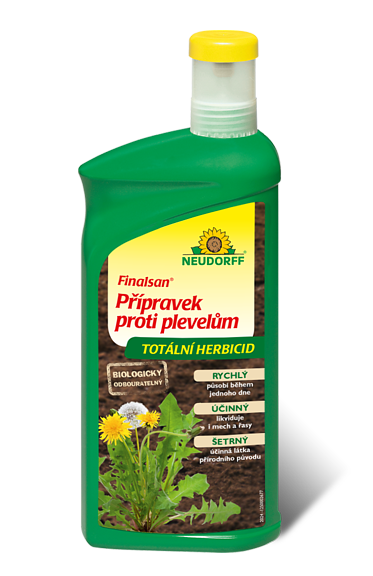


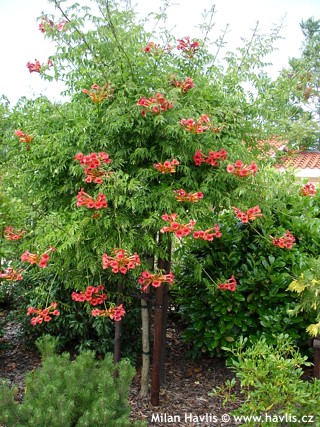
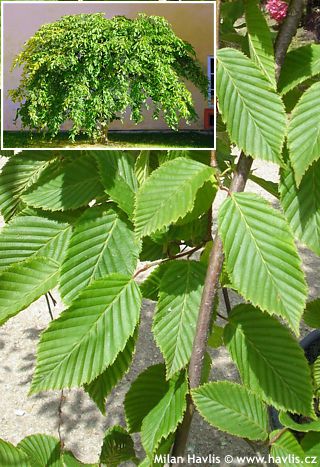
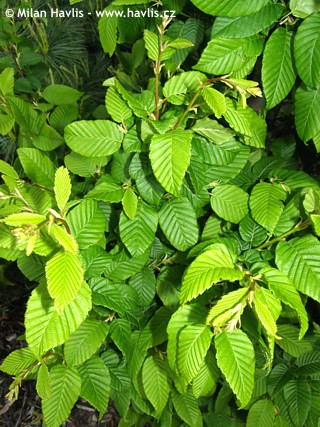
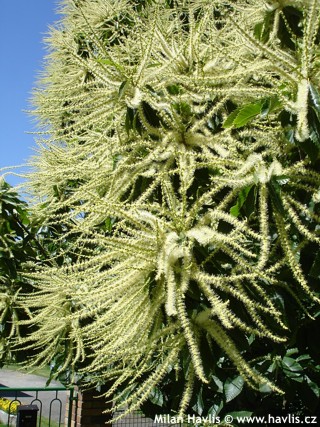
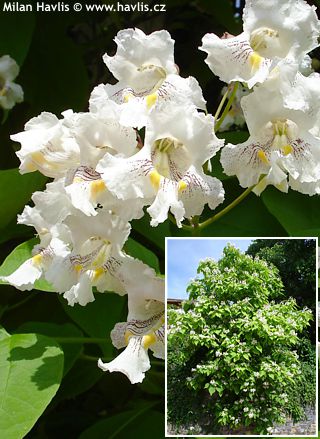
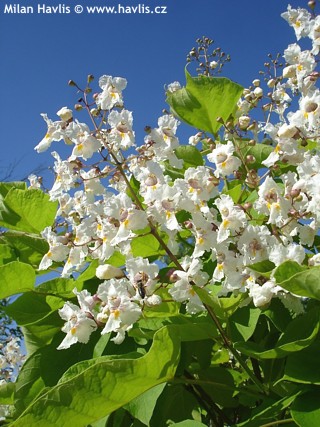
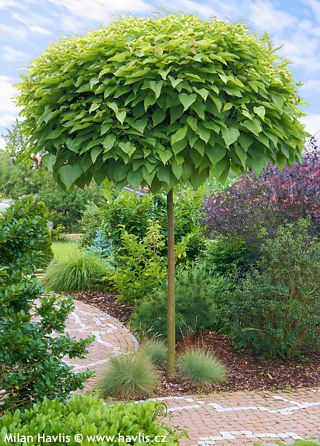
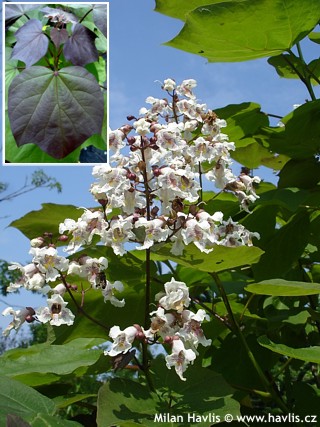
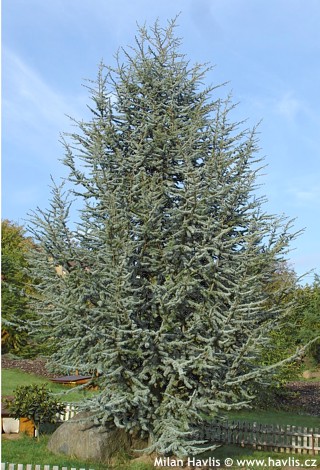
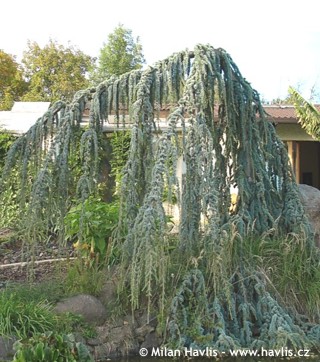
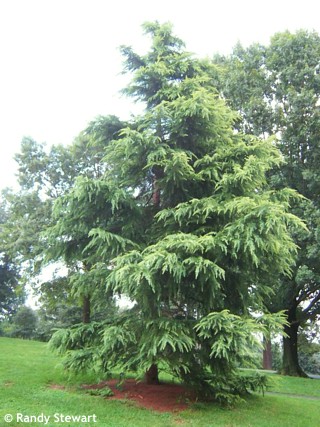
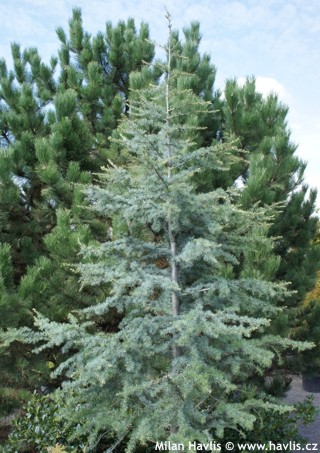
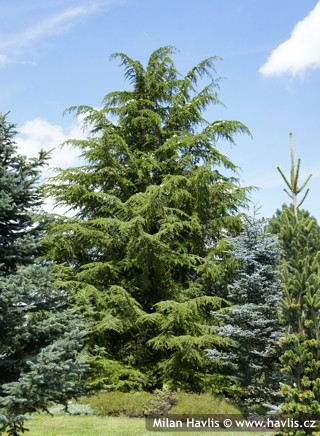
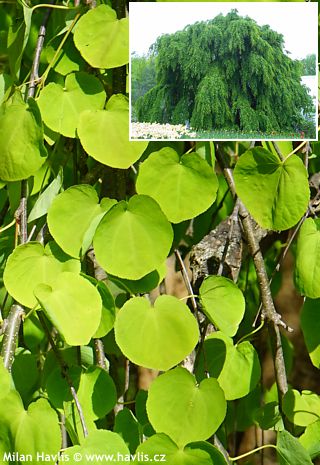
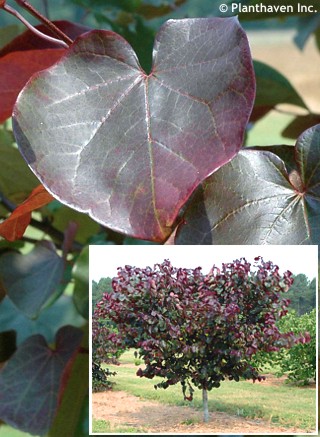
.jpg)
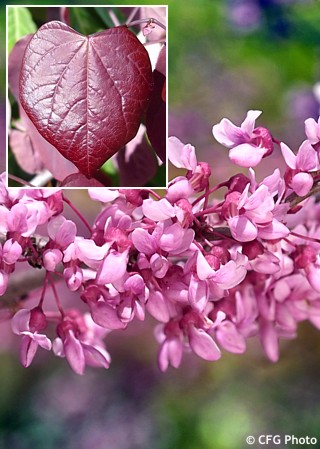
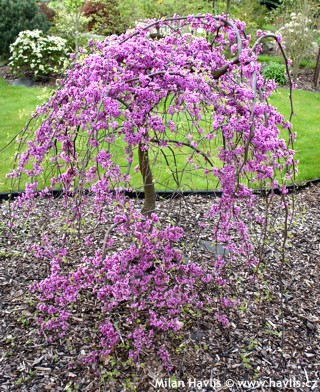
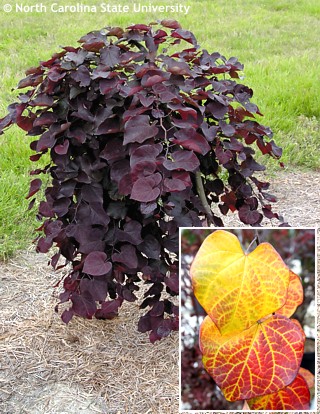
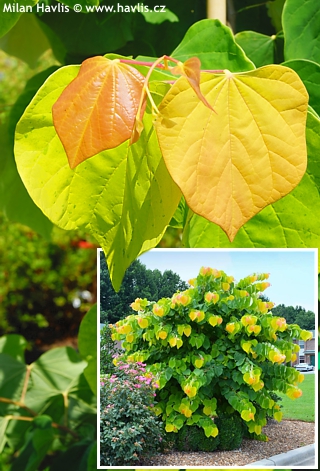
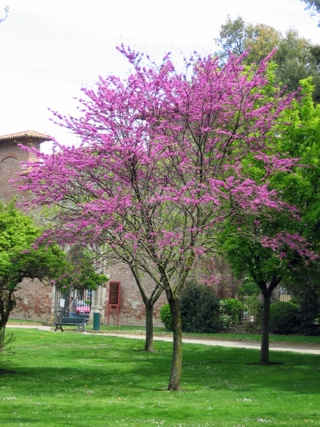
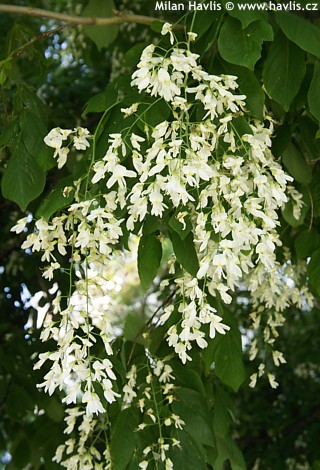
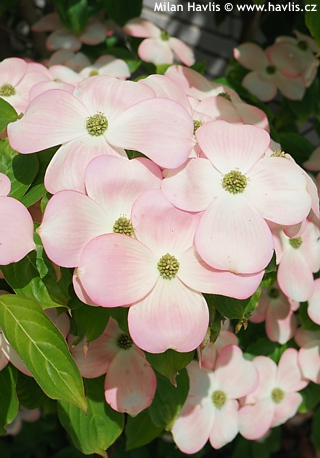
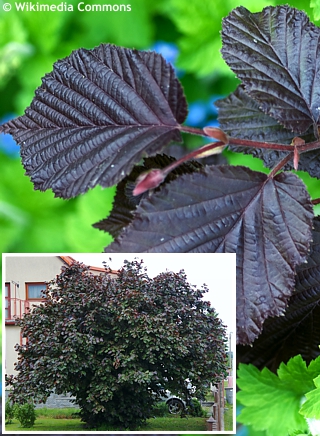
.jpg)
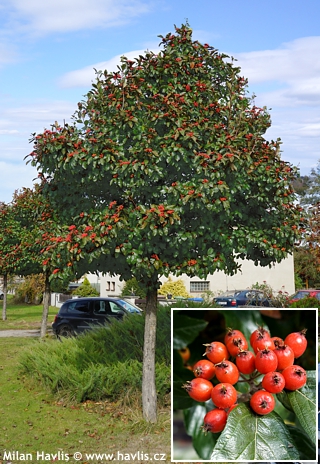
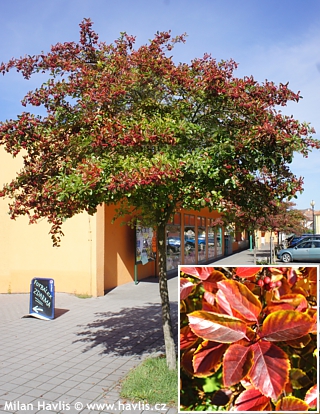
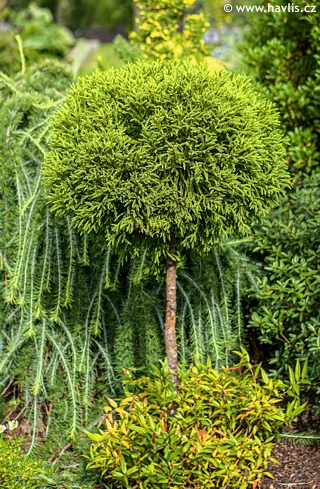
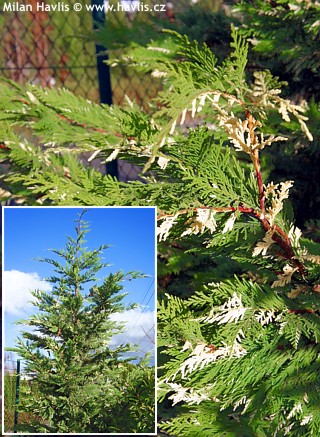
.jpg)
